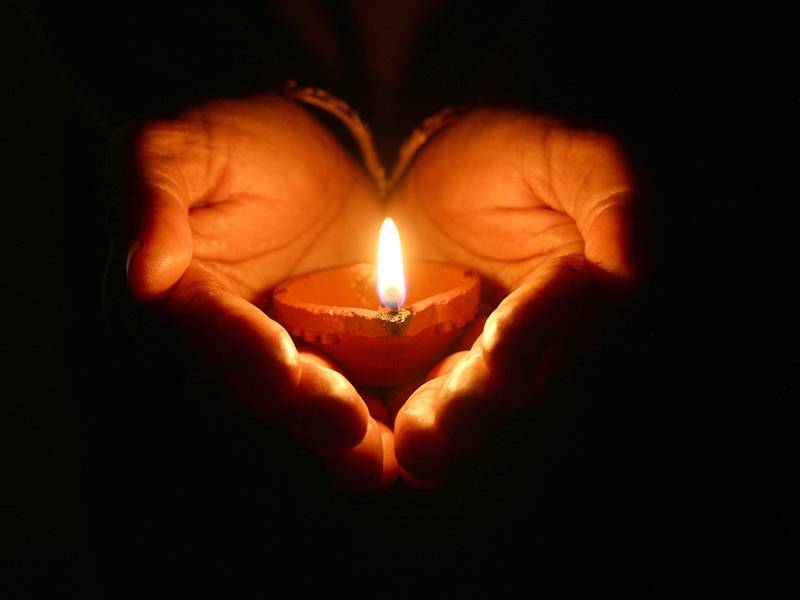Bonjour / Hello [nickname_else_first_name],
Table of contents
1) Perashat Hashavoua - Rabbi Eli Mansour
2) Halakhat Hashavoua (Halakhot related to day to day life) By Hazzan David Azerad -
The Tenth of Tevet - Peninei Halacha
3) Holy Jokes!
4) For KIDS

This Week's Parasha Insight with Rabbi Eli Mansour
Parashat Vayigash: The Master of Self-Control
The Torah in Parashat Vayigash tells the dramatic story of Yosef’s revelation of his identity to his brothers. The revelation came on the heels of Yehuda’s impassioned plea to Yosef to allow Binyamin, the youngest brother, to return home to Eretz Yisrael. Yehuda’s petition pulled all the right strings, as it were, of Yosef’s heart, and the Torah says that Yosef was unable to contain himself. Overcome by emotion, Yosef felt he could no longer continue concealing his identity from his brothers, and he announced, "I am Yosef."
It is noteworthy, however, that even in these moments of overpowering emotion, Yosef still remained fully in control. The Torah writes that before revealing his identity, Yosef announced that everyone else, all the Egyptian servants who were present in the room, should leave. He did not want to subject his brothers to unnecessary embarrassment by having other people hear of how they mistreated Yosef. This was a private family affair, and it would have been wholly inappropriate to expose the story to people on the outside. Yosef therefore took a moment before revealing his identity to ensure absolute privacy. Even at this moment when, as the Torah tells us, Yosef could no longer hold himself back from telling his brothers who he was, he actually was able to hold himself back long enough to ensure that this would be done in a proper, dignified fashion.
Yosef was a master of self-control. Like other great Sadikim, he always retained his composure and never lost himself. At times of overwhelming emotion, such as anger or frustration, we so often lose self-control and act in ways in which we would never normally act, only to feel sincere regret afterward. The Sadikim, however, are always in control of themselves, they always have their emotions in check. Remarkably, even when the Torah describes Yosef as "losing control," he clearly did not really lose it entirely. He still had the presence of mind, patience and discipline to act with propriety and discretion, and not with raw impulse.
While we may not be able to reach the exalted level of Yosef Ha’sadik, we must learn the lesson that emerges from his conduct in this episode. Emotions are part of the human condition, but they must always be kept under our control. We must never allow an offensive remark or a stressful period of life to overtake us to the point where we speak and act without thinking. We can and must exert control over ourselves and ensure to speak and act in a manner that we will not regret later.

Halachot this week are selected and Translated by Hazzan David Azerad
The Tenth of Tevet - Peninei Halacha
The prophets established a fast day on the tenth of Tevet, because that is when Nevuchadnetzar King of Babylonia came with his army to besiege Jerusalem, and that marked the beginning of the troubles which ended in the destruction of the First Temple and the exile of the Shechinah. Granted, during the Second Commonwealth, the siege began on a different day; nevertheless, the initial destruction of the Beit HaMikdash and abolishment of Jewish kingship occurred on the tenth of Tevet.
Once the tenth of Tevet was already established as a fast day, the rabbis added two other sorrowful events, which occurred around that date, to the character of the day: the death of Ezra the Scribe, on the ninth of Tevet, and the translation of the Torah to Greek, on the eighth of the month. The Chief Rabbinate of Israel also expanded upon the significance of the day, establishing it as a day of general mourning (Yom HaKaddish HaKlalli) for the holy souls who were killed in the Holocaust, whose date of death is unknown.
Our Sages say that Ezra the Scribe was worthy to have the Torah given through him, had Moshe Rabbeinu not preceded him (Sanhedrin 21b), implying that he was second only to Moshe. Ezra the Scribe enacted ten fundamental decrees (Bava Kama 82a), and by doing so, he inaugurated the tradition of the Sages of the Oral Law. Chazal further states that Ezra the Scribe, who ascended from Babylonia to build the Second Temple, is actually the prophet Malachi (Megillah 15a). That is to say: on the one hand, he is the last of the prophets, who are associated with the Written Law; while on the other hand, he is the first of the Sages of the Oral Law. Thus, he is a great Torah scholar who serves as a transitional link between the Written and Oral Torahs. And just like Moshe, he cared for Klal Yisrael and bore the burden of leading them. He was among the leaders of the aliyah from Babylonia and one of the builders of the Second Temple.
Afterwards, when the Greeks came to power, they issued a harsh decree against the Jews, forcing them to translate the Torah into Greek. That day was as calamitous for the Jews as the day upon which the Golden Calf was made, for the Torah belongs to the Jewish people and translating it into Greek blurred its uniqueness, giving the impression that anyone can engage in it. This occurred on the eighth of Tevet, causing darkness to descend upon the world for three days. Therefore, on the fast of Asarah B’Tevet we mention this painful event, as well.
Our master and teacher, R. Tzvi Yehudah Kook zt”l, said that we must rectify these three issues on the tenth of Tevet: 1) In response to the siege of Jerusalem, we must strengthen the walls of the city and build up the Land both spiritually and physically. 2) In response to the death of Ezra, we must enhance and glorify the Torah, while engaging in the ingathering of the exiles, as Ezra the Scribe did. 3) In response to the translation of the Torah into Greek, we must restore our genuine Jewish spirit and culture and uproot all the evil “spirits” that entered our culture throughout the exile, when the nations ruled over us.
Bevirkat Shabbat Shalom Umevorach
David Azerad
3) HOLY JoKeS!!
Selection of funny snippets, loosely related to this weeks parashah or current events, to brighten your day



4) FOR KIDS
Click on the image to open the youtube video








 MABROOK!!!
MABROOK!!!






